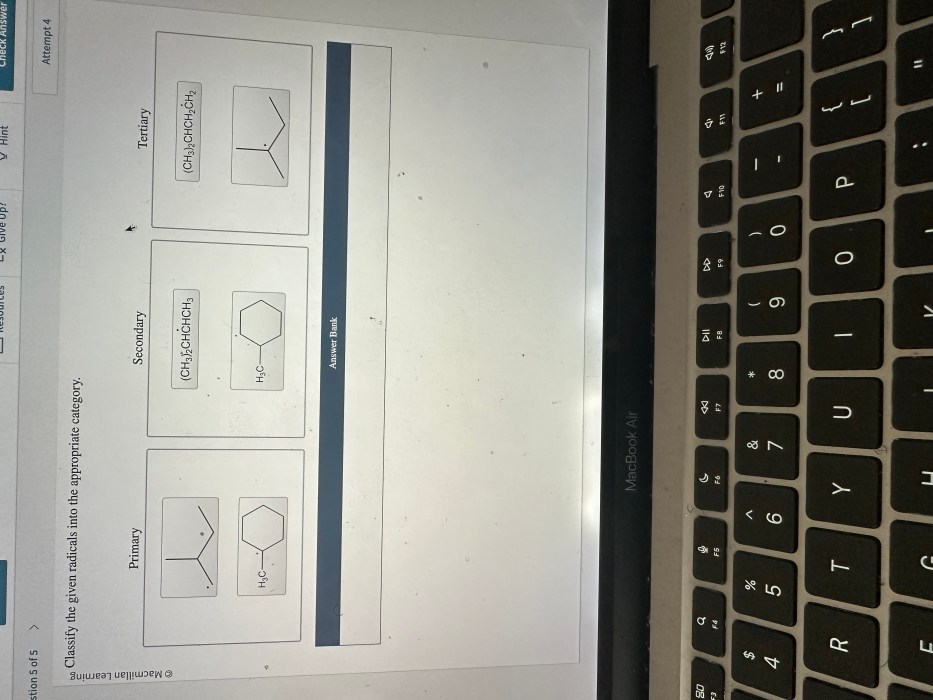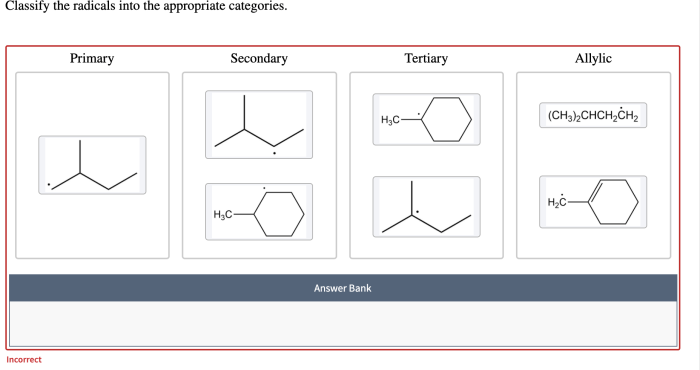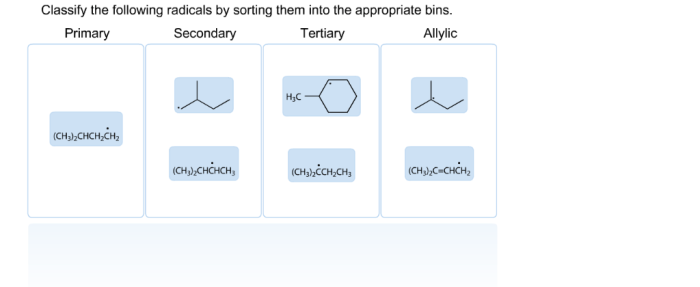Classify the given radicals into the appropriate category – In the realm of chemistry, radicals take center stage as highly reactive species. Understanding their classification is crucial for comprehending their behavior and applications. This discourse delves into the intricacies of radical classification, exploring its significance and diverse methodologies.
Classification of Radicals

Radicals are highly reactive chemical species that contain one or more unpaired electrons. Classifying radicals is essential for understanding their behavior and predicting their reactions.
Classification of Radicals, Classify the given radicals into the appropriate category
Radicals can be classified into several categories based on various criteria:
| Radical Category | Description | Examples | Applications |
|---|---|---|---|
| Alkyl Radicals | Radicals derived from alkanes | Methyl (CH3•), ethyl (CH3CH2•) | Organic synthesis, polymerization |
| Aryl Radicals | Radicals derived from arenes | Phenyl (C6H5•), benzyl (C6H5CH2•) | Aromatic chemistry, drug synthesis |
| Vinly Radicals | Radicals containing a carbon-carbon double bond | Vinyl (CH2=CH•), allyl (CH2=CH-CH2•) | Polymerization, organic synthesis |
| Carbene Radicals | Radicals containing a neutral carbon atom with two unpaired electrons | Methylene (CH2•), carbene (CR2•) | Organic synthesis, catalysis |
| Nitroxyl Radicals | Radicals containing a nitrogen-oxygen bond | Nitroxyl (NO•), 2,2,6,6-tetramethylpiperidine-1-oxyl (TEMPO) | Antioxidants, spin trapping |
FAQ Compilation: Classify The Given Radicals Into The Appropriate Category
What is the purpose of radical classification?
Radical classification aids in understanding their reactivity, stability, and applications, enabling researchers to predict their behavior in various chemical reactions.
How are radicals classified?
Radicals are classified based on their stability, reactivity, and structure, using methods such as electron spin resonance spectroscopy and computational chemistry.
What are the applications of radical classification?
Radical classification finds applications in organic chemistry, biochemistry, and environmental science, guiding the design of new drugs, understanding biological processes, and mitigating environmental pollution.





